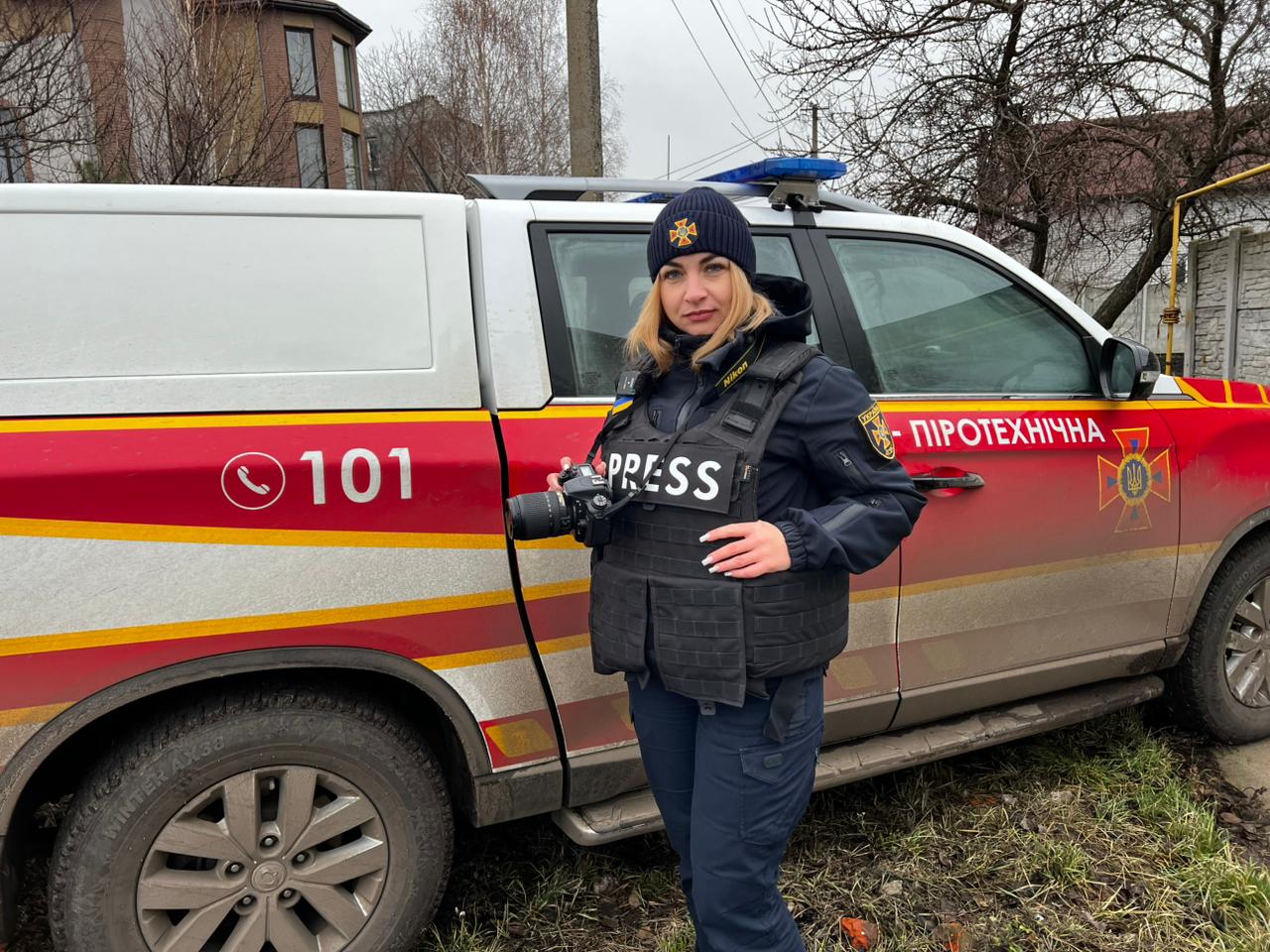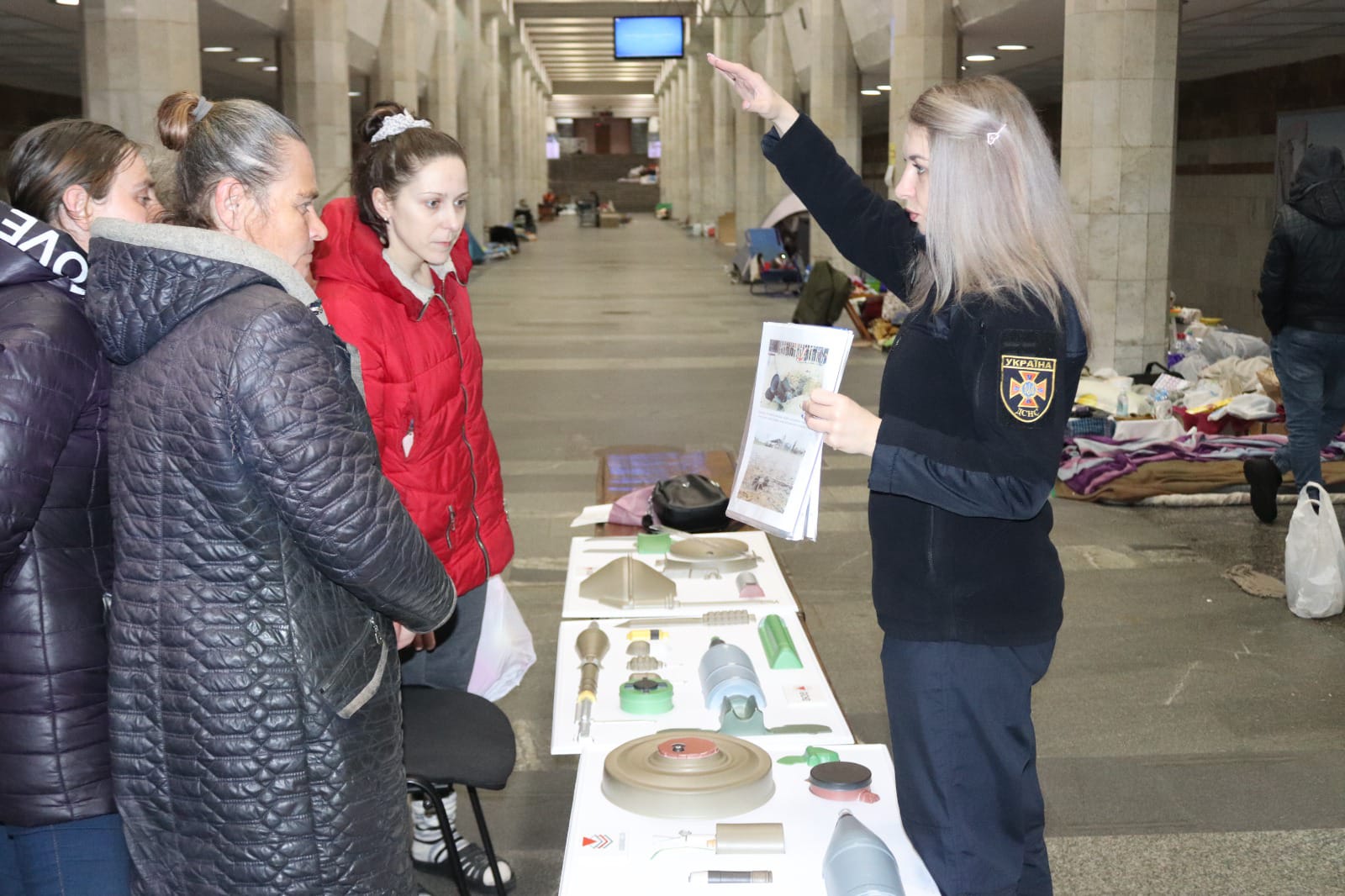
Julia Gorlenko has always had a calling for teaching. As a child, she would transform her bedroom into a classroom, conducting lessons with the dedication of a future educator. This passion led her to earn a degree in languages from the Kharkiv Pedagogical University “H.S. Skovoroda” and pursue a career as an English teacher. However, her path took an unexpected turn in 2009 when she seized the opportunity to join Ukraine’s State Emergency Service (DSNS), a traditionally male-dominated field where women’s presence has proven increasingly essential.
Today, she is an instructor at the Mine Safety Training Department of the Kharkiv Interregional Center for Humanitarian Demining and Rapid Response. Her expertise and experience make her a key figure in a high-risk and complex operational environment. In Kharkiv, one of Ukraine’s most heavily contaminated regions with unexploded ordnance, her work is critical to ensuring the safety of local communities. Gorlenko leads training courses for civilians and field operators, equipping them with essential knowledge on identifying and handling the dangers posed by landmines and explosive remnants of war.
Her work extends far beyond the training rooms. As the conflict has escalated, Julia is often among the first to reach newly liberated areas, where Russian forces have left behind a significant number of hidden explosives. Here, her role becomes even more crucial: educating the local population on essential safety measures to prevent accidents. “People listen carefully because they know my words can mean the difference between life and death,” she says.
Her commitment has a significant social impact, particularly on the most vulnerable groups, such as women and children. “Children affect me the most,” she shares. “They have endured experiences no one should ever face, speaking about fear and loss with a disarming sense of normalcy.” This direct exposure to the realities of war strengthens her determination to continue her work with dedication and professionalism.
Her husband, also a DSNS officer for over thirty years, fully understands the challenges of her profession. Their children, aged eight and five, look up to her with admiration and often attend her lessons, internalizing a powerful message: a woman can make a significant impact even in traditionally male-dominated fields.
Alongside her operational role, Julia is continuing her academic education, pursuing a second degree at the National University of Civil Protection. Her goal is to further refine her skills and expand the reach of her work. “I don’t yet know what my next career step will be,” she says, “but I am certain that I will do everything I can to be of service.”
Julia’s contributions are part of the Health Care for Safety and Rehabilitation project, coordinated by the Civil Society Organization Missione Calcutta APS and funded by the Italian Agency for Development Cooperation, AICS Kyiv. Through mine safety training and awareness activities, the project reduces risks for thousands of people, with a particular focus on women, children, and vulnerable communities. This initiative is part of the broader Italian Cooperation emergency program, which, with 26 projects and over 100 organizations involved, provides support to one million people across Ukraine and Moldova.
